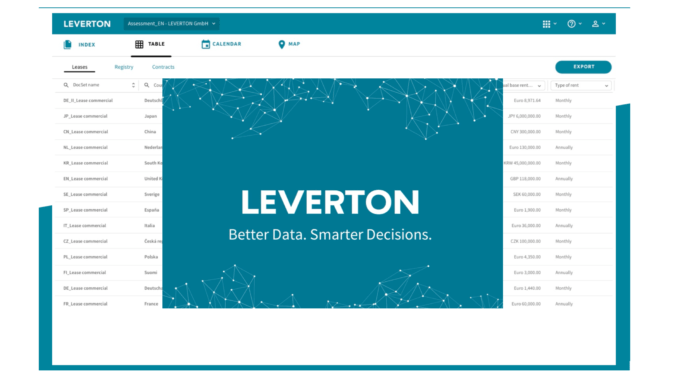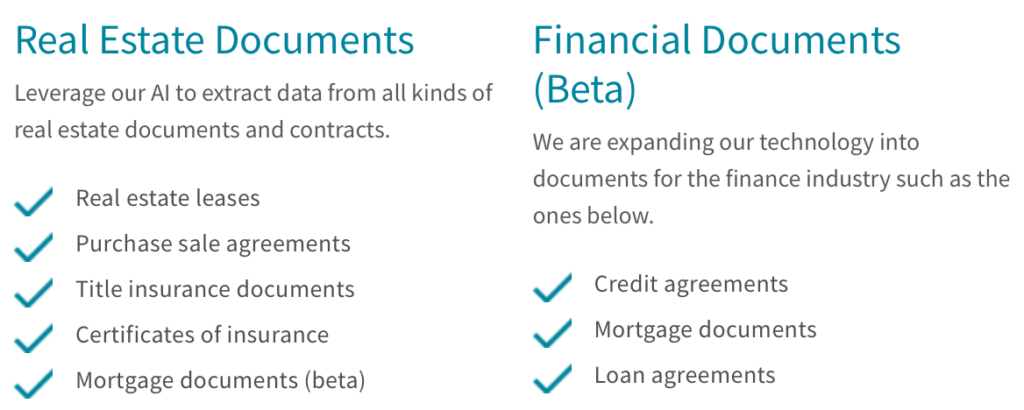
Legal AI and prop tech pioneer, LEVERTON, has launched a new capability that will allow customers to train their own models and move beyond the range of document types the company provides for. They are calling this ‘AI as a Service’, or AIaaS, and it marks an important expansion of the company’s capabilities.
AIaaS will be offered as a SaaS solution to create extraction templates and annotations for new document types that are not currently available in the company’s ‘library’.
The move will no doubt be welcomed by the market, which has got used to seeing the ability to train up NLP models on their own, as and when they like, with other AI providers. For example, Kira Systems’ ‘Quick Study’ feature is a case in point, though LEVERTON’s approach appears to work a little differently.
This move now helps to level the playing field, allowing LEVERTON, which first launched in Germany but now operates globally, to compete more easily with the other big brand legal AI companies.
It also means that clients won’t have to focus mainly on areas related to property, where LEVERTON has always had a strong focus, and could now – in theory – train up the system to analyse any type of documents they are interested in.
The company said: ‘In Beta testing since 2018, LEVERTON AIaaS has been proven effective at extracting data from an array of document types including: insurance contracts, invoices, procurement documents, credit card bills, shipping manifests, credit agreements, loan documents, case law, and more.’
Florian Kuhlmann, LEVERTON’s founder and CTO, added: ‘When we started building LEVERTON in 2012, deep learning was a completely new concept. Even companies like Google, Amazon, and Facebook were just starting to explore its power. It took us years to perfect our technology, and once we did, we wanted to help every business use it to unleash the power of their data – even without a team of data scientists.’
Abhinav Somani, LEVERTON’s Global CEO, concluded: ‘We want people to stop spending hours manually scrubbing scanned PDFs, and instead, leverage automation so they can spend that time finding insights from that data.’
LEVERTON also offers an ‘Assisted solution’ that will enable users to define their extraction needs and leverage LEVERTON’s third-party network to provide the ‘annotation services’. The company also now has around 200 clients, the company added.
Is this a big deal?
For LEVERTON it certainly is a big deal. Only offering pre-set, pre-trained extraction capabilities may take a lot of work out of the hands of the clients – which is a good thing – but, it also means clients cannot easily customise the AI tech for their own needs.
With the new DIY capability LEVERTON widens its potential client base and also hopefully allows those existing users to now make greater use of the system and – no doubt LEVERTON hopes – use them rather than relying on other AI systems.
The fact that the company highlighted shipping manifests was especially interesting, as Artificial Lawyer has not seen legal AI companies working with such documents before. It also shows that LEVERTON is seeing a future that is far larger than the real estate and finance world.
Below are some of the areas where the company currently has pre-trained capabilities in their library.

Will this change the market picture in the legal AI sector? Hard to tell yet, but it certainly shows that LEVERTON is still very much on the map and potentially will now be able to claim a much wider market share.